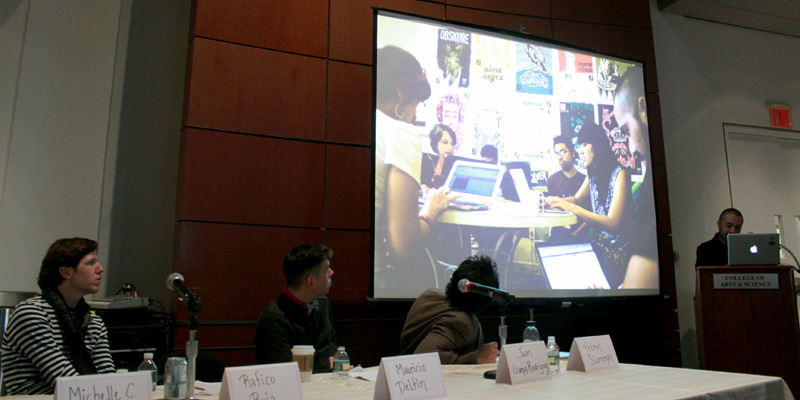
Transcript and slideshow of a paper presented at the 2013 Neil Postman Graduate Conference
— Download Presentation Text with Images (English)
— Descarga Texto de la Presentación (Español) — ¡Muy Pronto!
Abstract
In recent years, Latin America has witnessed the appearance of various “cultural networks” composed of arts and culture organizations, directly influenced by digital media and networked technologies. These networks have impacted policy spaces while forming alternative circuits for cultural production, consumption and valuation, within their countries and across national boundaries. They can be understood as a reaction to vertical cultural policy-making (generally focused on the promotion of fine arts and archaeological heritage) and widespread institutional opacity and government centralization in the region. Cultural networks advance a plurality of socio-political agendas and broaden the spectrum of collective aspirations surrounding culture and its relationship to social development.
This paper argues that the power of cultural networks relies on a distinct exploitation of the affordances of digital media to generate new and augmented collective narratives, champion a non-hierarchical and distributed ethos, and introduce new modes for cultural labor. It also proposes that they represent an emerging politics of relationality among arts and cultural organizations that takes advantage of a widening gap between mainstream institutional and media cultures and new political cultures characterized by rapid appropriation of distributed technologies and open source ethics. Three case studies — Fora do Eixo, Plataforma Puente and Cultura de Red — are used to describe how these networks function as domains for social action, vehicles for the construction of “futurity” (Appadurai, 2004) and meaning structures that engineer new social relations.
Finally, this paper argues that cultural networks constitute a unique opportunity to study “the becoming topological of culture” as defined by Lury, Parisi and Terranova (2012); the idea that culture is increasingly organized in terms of its capacities for change. For these networks, culture appears as a field of connectedness, of ordering by means of continuity and not as a structure based on essential properties, such as archetypes, values or norms, or regional location (5). Thus, these networks challenge a foundational aspect of contemporary cultural policies: The idea of “national space” as main guarantor and source for political identity, order and control.





















